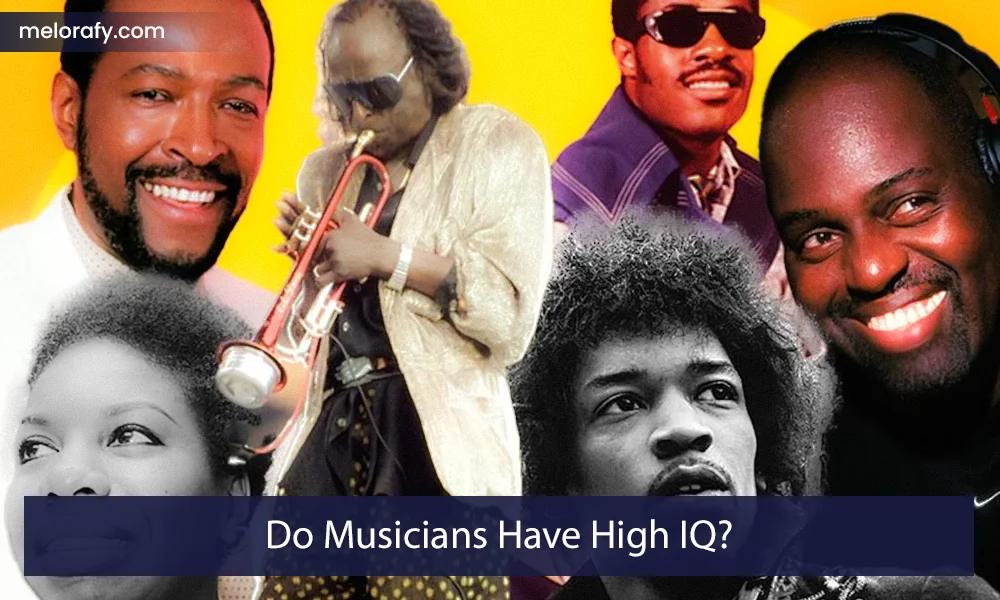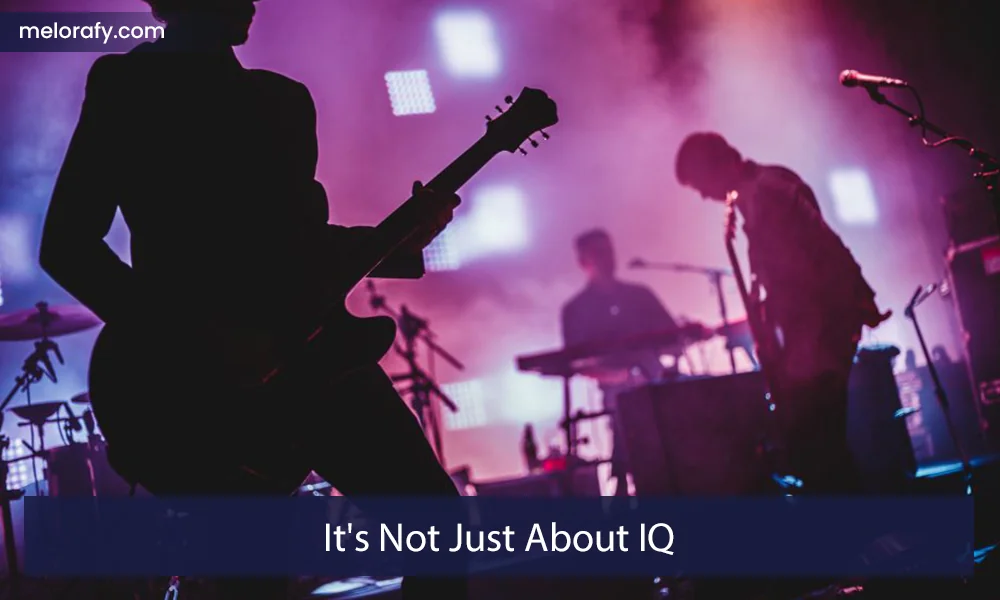
Do Musicians Have High IQ? Exploring the Connection Between Music and Intelligence
The intersection of music and intelligence has fascinated scientists, educators, and music enthusiasts for decades. A common question raised in this discussion is: Do musicians have a high IQ? This article from Melorafy examines the relationship between music education and intelligence and sheds light on whether musicians actually have higher levels of intelligence than non-musicians.
Understanding IQ and Intelligence
Before we explore the connection between musicianship and intelligence, it’s important to define what we mean by “intelligence.” Intelligence Quotient (IQ) is a measure of a person’s reasoning ability in comparison to the statistical norm or average for their age, taken as 100. However, intelligence is multifaceted, encompassing problem-solving skills, creativity, emotional knowledge, and more.
The Research on Musicians and IQ
Several studies have examined the relationship between musical training and cognitive abilities, including IQ. These studies often find that musicians, especially those who begin training at a young age, display enhanced cognitive functions, including:
- Improved memory and attention: Musicians tend to have better working memory and attention to detail, which are critical components of intelligence.
- Enhanced language and mathematical skills: Music training is linked with better performance in language and math, suggesting a broad impact on cognitive abilities.
- Increased IQ scores: Some research indicates that children who undergo musical training show a slight increase in IQ scores over their non-musical peers.
![]()
Why Might Musicians Have Higher IQs?
The question then arises: why might musicians exhibit higher IQs? The answer lies in the nature of musical training itself.
- Cognitive stimulation: Learning and playing music stimulates the brain, enhancing functions like memory, attention, and problem-solving.
- Neural plasticity: Engaging with music can lead to changes in brain structure and function, promoting neural plasticity. This is the brain’s ability to form and reorganize synaptic connections, especially in response to learning or experience.
- Discipline and practice: The discipline required for musical training, including practice and perseverance, may translate into improved cognitive skills and higher IQ.
It’s Not Just About IQ
While some research supports the idea that musicians might have higher IQs, it’s crucial to recognize that intelligence is not solely defined by an IQ score. Musical training fosters a range of skills and attributes, including creativity, emotional expression, and cultural awareness, which may not be directly measured by traditional IQ tests.
The Role of Music Education
The potential cognitive benefits of musical training underscore the importance of music education. Access to music education can provide children with a valuable opportunity to enhance their cognitive development, alongside the inherent joy and cultural value of learning music.
Caveats and Considerations
It’s important to note that the relationship between music and intelligence is complex and influenced by many factors, including the type of musical training, the individual’s background, and their innate abilities. Not all musicians will have high IQs, and high intelligence can manifest in many areas unrelated to music.
Beyond IQ: The Holistic Benefits of Musical Engagement
Exploring the question of whether musicians have high IQs invites a broader consideration of how musical engagement contributes to overall human development. While the correlation between musical training and IQ provides intriguing insights, the holistic benefits of engaging with music encompass far more than cognitive enhancement alone.
Emotional and Social Intelligence
Music is inherently emotional, capable of expressing profound human feelings and experiences. Musicians, through their craft, develop a keen sensitivity to emotional nuance, which can enhance their emotional intelligence. This heightened emotional awareness extends to social contexts, where musicians may exhibit greater empathy and interpersonal skills. Such emotional and social intelligence is critical to personal success and well-being, yet it is not typically captured by traditional IQ tests.
Creativity and Innovation
One of the most significant benefits of musical training is the development of creativity. Musicians regularly engage in creative problem-solving, whether composing a new piece, improvising during a performance, or interpreting a musical score. This creative engagement stimulates the brain’s ability to think outside the box and apply innovative solutions to various challenges, a skill highly valued in many areas of life and work beyond music.
Discipline and Persistence
The process of mastering an instrument or a piece of music requires discipline, patience, and persistence. These qualities, cultivated through years of practice, are beneficial across all areas of life. Musicians learn the value of hard work, resilience in the face of challenges, and the satisfaction of achieving long-term goals. Such traits contribute to a strong work ethic and success in academic, professional, and personal endeavors.
![]()
Cultural Awareness and Connectivity
Music is a universal language that transcends cultural and linguistic barriers, fostering a sense of connectivity and understanding among people from diverse backgrounds. Musicians often explore music from various cultures, gaining insights into different perspectives and traditions. This cultural awareness enriches the musician’s worldview, promoting inclusivity and respect for diversity.
The Broader Educational Impact
The discussion around musicians and IQ highlights the vital role of arts education in fostering well-rounded, intelligent individuals. Incorporating music and other arts into the educational curriculum supports a more holistic approach to development, nurturing not only cognitive skills but also emotional, social, and creative capacities. Recognizing the broad benefits of musical engagement advocates for the continued support and funding of music education programs.
So, do musicians have high IQs? The evidence suggests a positive correlation between musical training and enhanced cognitive abilities, including aspects of intelligence measured by IQ tests. However, the true value of music goes beyond IQ scores, enriching lives with creativity, emotional depth, and cultural expression. Whether you’re a musician or an appreciator of music, the benefits of engaging with music are profound and wide-ranging, supporting the development of a well-rounded, intelligent individual.